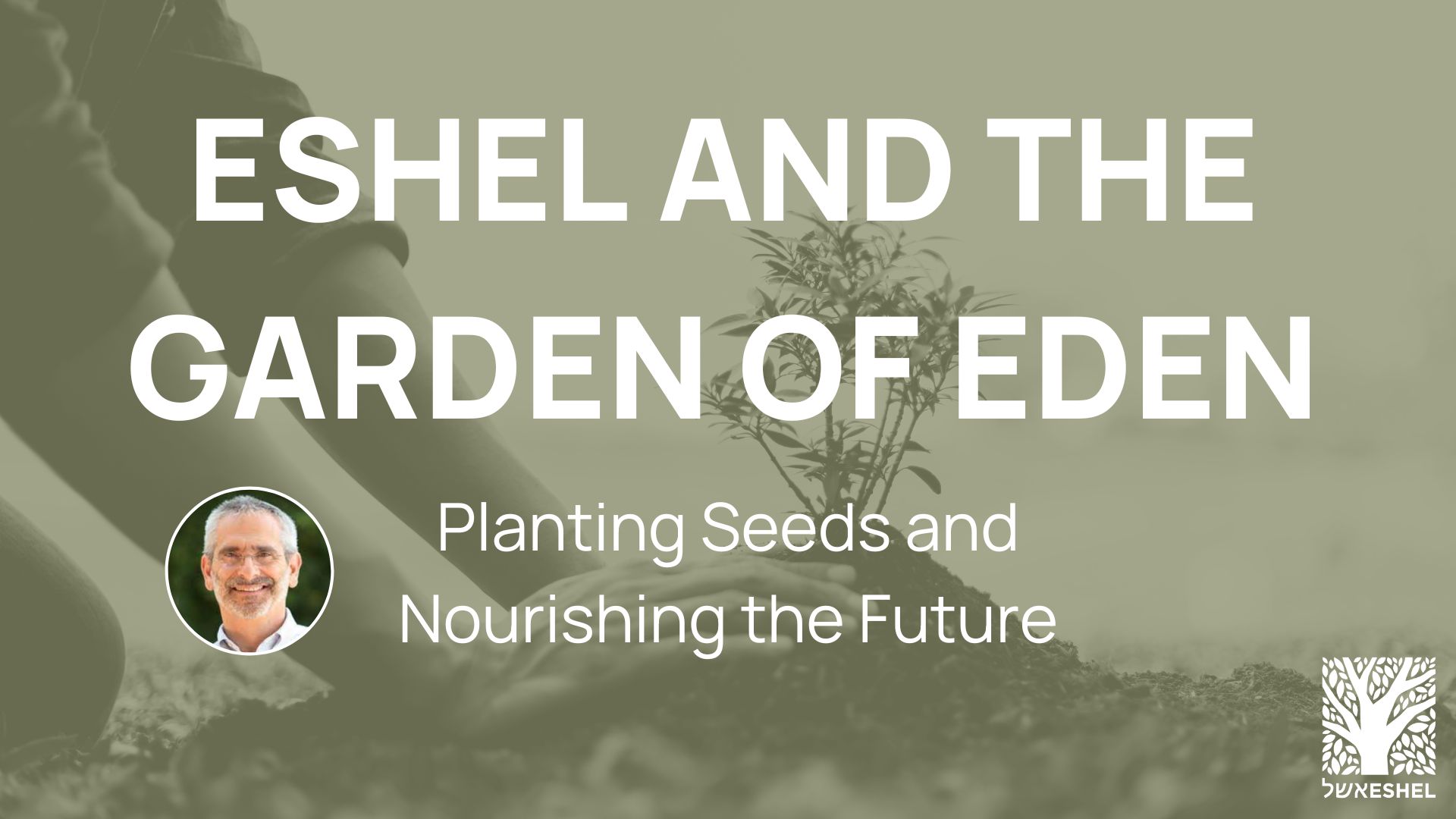
Happy Tu B’Shvat! This is a holiday that thrills both accountants and mystics. In the land of Israel, fruit could only be freely eaten from the fifth year after it was planted. The first three harvests were not to be eaten at all, and the fourth could be eaten only in Jerusalem. The fifteenth of Shvat is the last day for a sapling to be planted if we want to count the period before Rosh Hashanah as part of the four year countdown. Accountants are well aware that one day can make a year’s difference.
The mystics, however, constructed this moment as a celebration of God’s manifold creation and generosity. They encouraged the eating of diverse tree fruits in a ritual they deemed a seder for Tu B’Shvat. It may well be that this tradition came from their pairing of two stories of plantings in the book of Genesis, one by God and the other by Abraham.
וַיִּטַּע ה אֱלֹהִים גַּן־בְעֵדֶן מִקֶּדֶם וַיָּשֶׂם שָׁם אֶת־הָאָדָם אֲשֶׁר יָצָר׃ וַיַּצְמַח ה אֱלֹהִים מִן־הָאֲדָמָה כָּל־עֵץ נֶחְמָד לְמַרְאֶה וְטוֹב לְמַאֲכָל וְעֵץ הַחַיִּים בְּתוֹךְ הַגָּן וְעֵץ הַדַּעַת טוֹב וָרָע׃
God planted a garden in Eden, in the east, and placed there the Human who had been fashioned. And from the ground God caused to grow every tree that was pleasing to the sight and good for food, with the tree of life in the middle of the garden, and the tree of knowledge of good and bad.
God’s beneficence is such that prior to the creation of Adam and Eve He sets their table and provides a cornucopia of fruit trees for them to partake of. Generations later, our forefather Abraham follows his Master by planting a similar garden that he calls an Eshel.
וַיִּטַּ֥ע אֶ֖שֶׁל בִּבְאֵ֣ר שָׁ֑בַע וַיִּ֨קְרָא־שָׁ֔ם בְּשֵׁ֥ם יְהוָ֖ה אֵ֥ל עֹולָֽם׃
[Abraham] planted an Eshel (tamarisk) at Beer-sheba, and invoked there the name of the Everlasting God.
According to the tradition, Abraham either planted a flowering tamarisk tree (Eshel) which marked welcome from afar, or he established an inn for travelers offering food (Achilah), drink (Shetiah), and sleeping accommodations (Linah).
God plants a garden and sets the table for Her future tenants; Abraham, on his arrival in the promised land, begins as well with a gesture of care and nourishment for future passersby. Both God and Abraham plant trees to signal to all who show up that their arrival was anticipated, and their needs were prepared for well in advance. The planting of a tree is always an investment in future generosity. For both God and Abraham, the garden and the Eshel tree is an expression of anticipation that says: “I have been waiting for you. I’m glad that you’re here.”
When the settlement of Magdiel celebrated its establishment in 1924, Rav Kook participated in the festivities. The ceremony included the planting of trees, and Rav Kook was given the honor of placing the first sapling in the ground. The organizers handed the rabbi a hoe with which to dig the hole, but he threw it aside and began digging with his bare hands.
Rav Kook suddenly became all impassioned. His entire body seemed to quiver and shake, and his face looked like a burning flame, as he placed the sapling in the ground with awe and trepidation. When asked about his response to planting a tree in Israel, he replied:
“When I held that tender sapling in my hand, I remembered the Midrash’s interpretation of a verse in Deuteronomy,
“You shall follow the Eternal your God… and cling to Him” (Deut. 13:5). “Is it possible for flesh and blood to ascend to the heavens and cling to the Shechinah, about Whom it is written, ‘For the Eternal your God is a consuming fire (Deut. 4:24)? … Rather, [the explanation is as follows:] At the beginning of creation, the Holy One Blessed be He engaged in planting, as it says, ‘God planted a garden in Eden’ (Gen. 2:8). Similarly, when you enter in the Land, engage in planting first, as it is written, ‘When you shall come into the Land, and you shall plant all types of fruit trees’ (Lev. 19:23).” (Vayikra Rabbah 25:3).
When I was about to put the sapling in the ground,’ Rav Kook explained, ‘I remembered these words and felt as if I was clinging to the Shechinah.’
This Tu B’shvat, let us remember that the bountiful creation we enjoy is God’s maternal gesture of love, and that the purpose of planting trees is to imitate this motherly God – but not only to nourish our own families, but to signal welcome and generosity to many others. May we all continue to offer care and nourishment to the stranger and proudly display signs of welcome to all those who are most in need.

